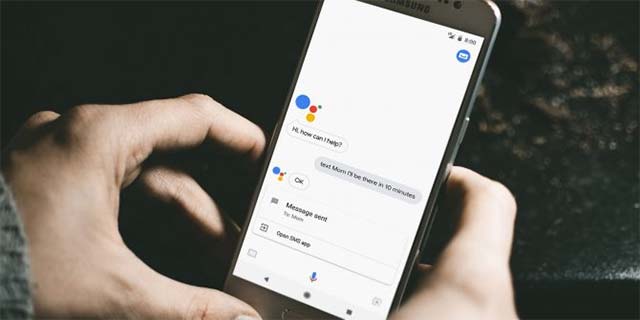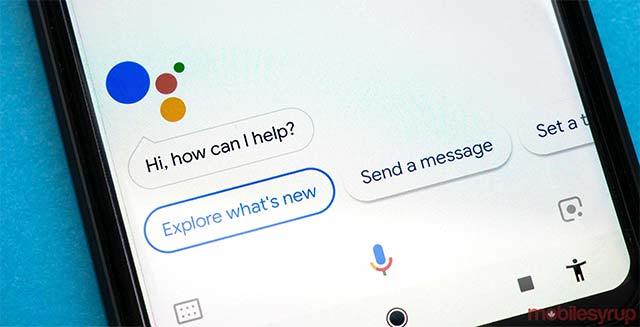Google Assistant is adding many new voice options created by AI
Google Assistant is one of the most popular and favorite virtual assistants available today thanks to its intelligence, humor, and the great range of voice options it supports. This AI assistant can now speak and sing like singer John Legend in the United States, and can interact with humans in over 30 languages in 80 different countries around the world (with a starting point of 8 types of languages and 14 countries in 2017). In addition, after a long period of training, Google's AI engine is now able to create new voice options with high levels of realism, promising to bring users more exciting experiences.
- Google introduces a new feature that makes it easy to find important moments in a video
 Google Assistant is one of the most popular and favorite virtual assistants in the world
Google Assistant is one of the most popular and favorite virtual assistants in the world
To enhance the user experience with the Virtual Assistant in a number of countries outside of the United States, Google recently added a second voice option with a more unique rhythm to English (Indian) language packs. Degrees), French, German, Japanese, Dutch, Norwegian, Korean and Italian. In particular, these are all voice options created by Google's own AI engine. Previously, AI also created 11 customized English voices, 6 of which were introduced at the Google I / O 2018 developer conference.
Google Assistant Product Manager, Brant Ward, said each voice option was synthesized by a machine learning system - WaveNet - developed and managed by DeepMind, a company specializing in research and intelligence applications. Artificial intelligence is also part of the Alphabet Group. The way WaveNet creates a new voice option is basically not too complicated. The key element here is intonation in each specific situation, how to be as natural and as realistic as spoken by people. WaveNet creates intonation by identifying the patterns in the speech data to which it is trained, thereby synthesizing and creating new options.
- Google Chrome 77: New interface, customizing the Tab page, Chromebook Assistant, and a number of other notable changes
 WaveNet creates intonation by identifying sound patterns in the speech data for which it is trained
WaveNet creates intonation by identifying sound patterns in the speech data for which it is trained
In addition to being able to create conversations with much more accurate intonation than previous AI models, WaveNet also proved to be more efficient in terms of 'creative productivity'. This AI model runs on Google's tenor processing units (TPU), or custom chips built into specially optimized circuits for tasks involving AI model training. As a result, WaveNet takes only 50 milliseconds to create a voice model with basic length.
- Google 'purged' 24 applications downloaded nearly 500,000 times containing malicious malware
 Google Assistant's multilingual support has been greatly improved
Google Assistant's multilingual support has been greatly improved
In February of this year, Google also enhanced Google Assistant's multilingual support - allowing this virtual assistant to recognize multiple languages in multidimensional conversations - Korean, Hindi, Swedish, Norwegian, Danish, and Dutch. In another news, Google has just introduced Interpreter Mode for translations from dozens of languages, claiming a 29% reduction in speech recognition errors.
You should read it
- ★ This is what people ask Google Assistant
- ★ Google Assistant is updated with a variety of new features to become smarter, even knowing where your mother's home is
- ★ How to activate and use virtual assistant Google Assistant on Chrome Android
- ★ How to change the voice in Google Assistant
- ★ Steps to install Google Assistant on Windows computer